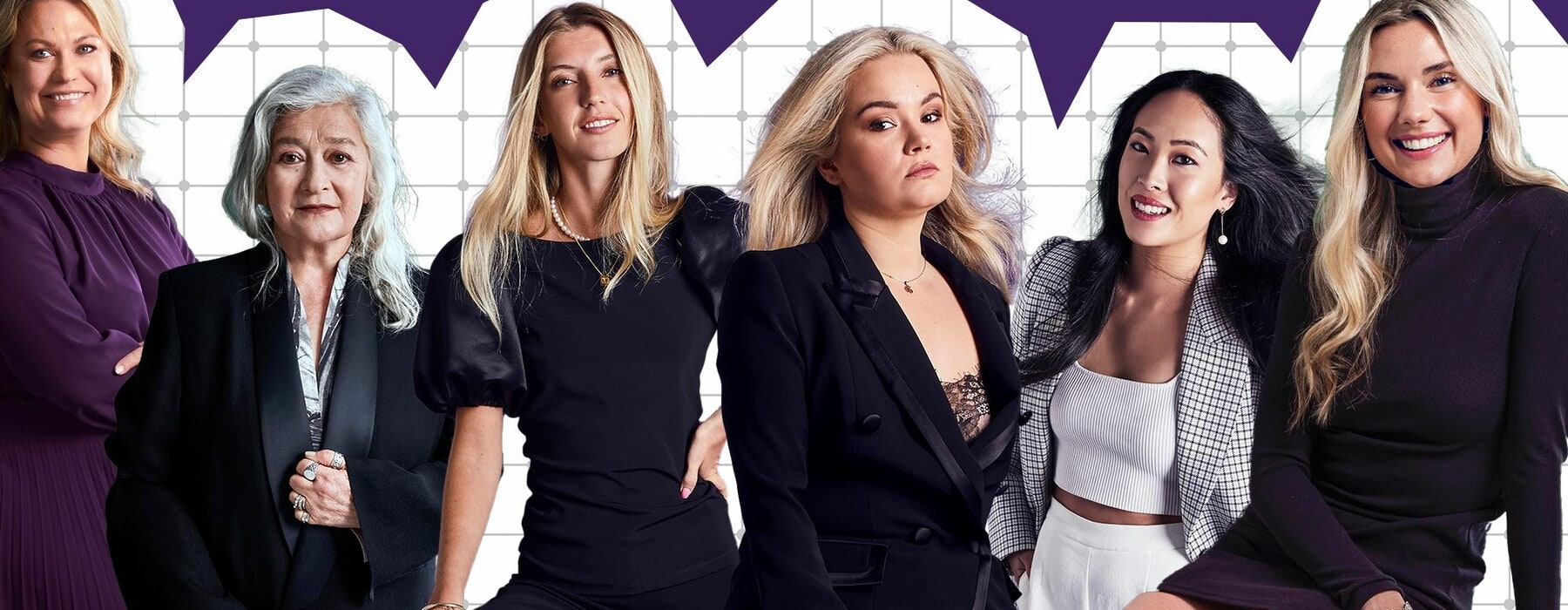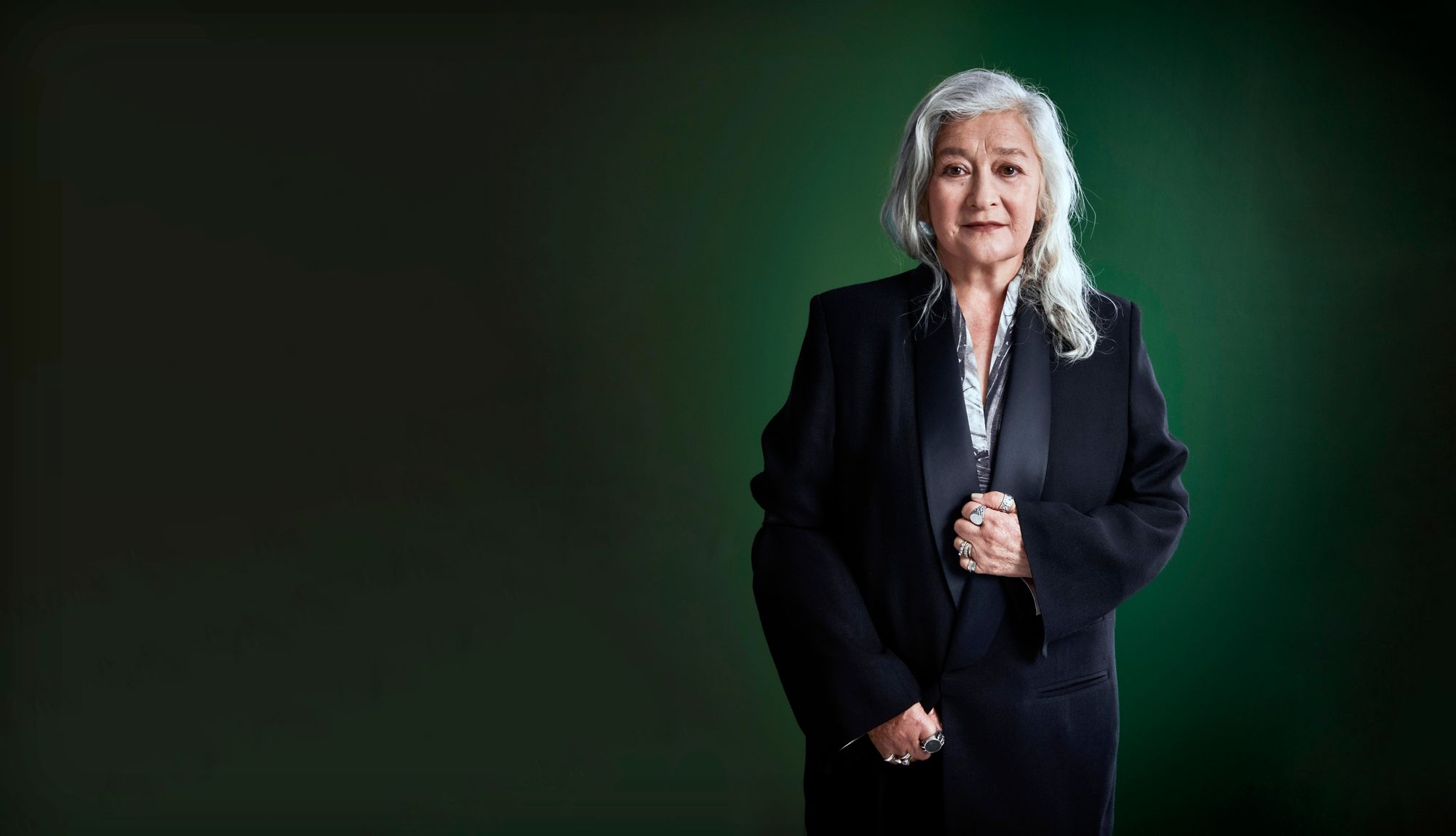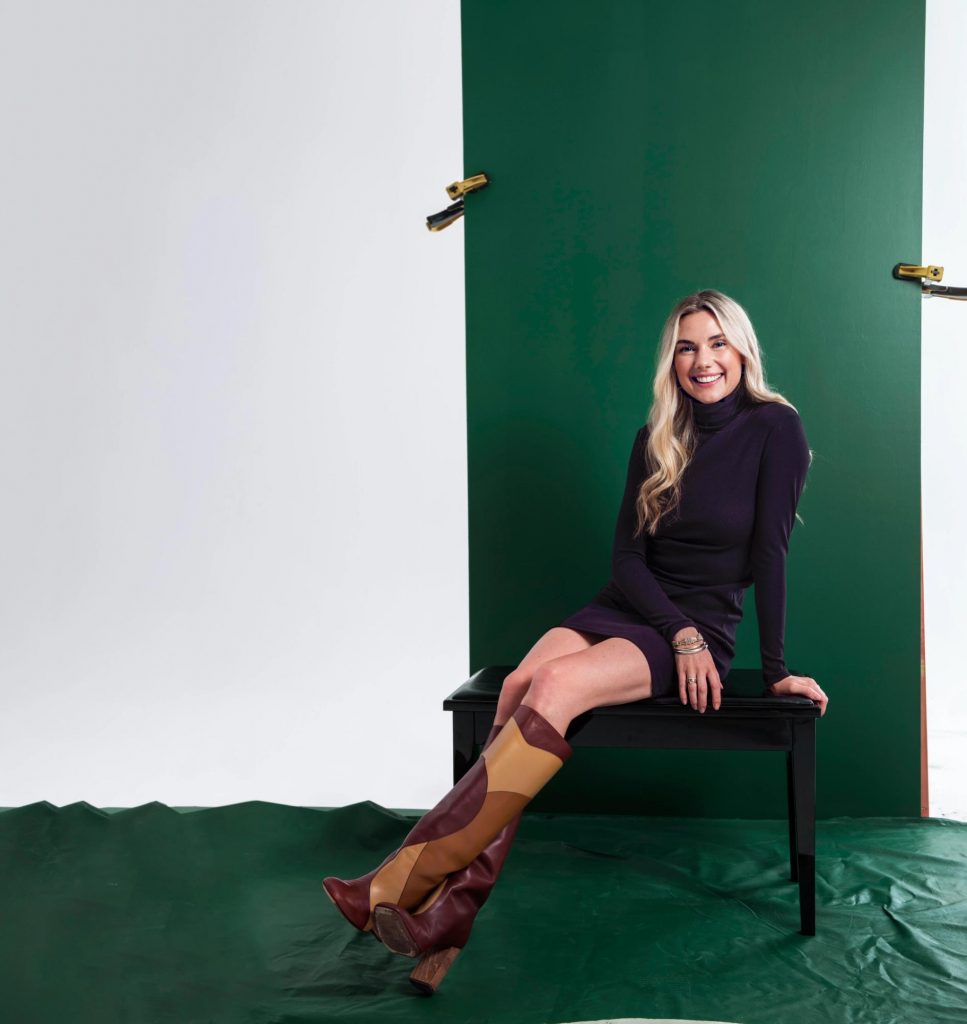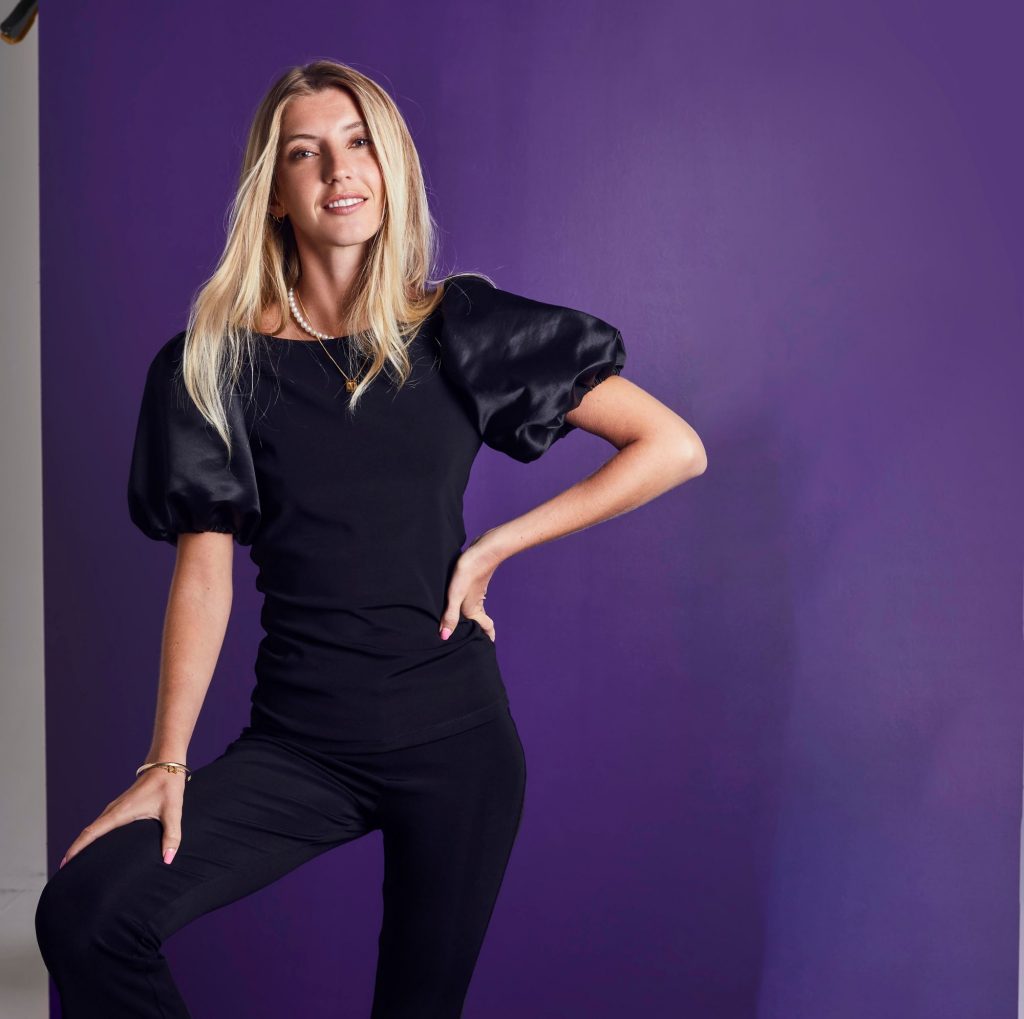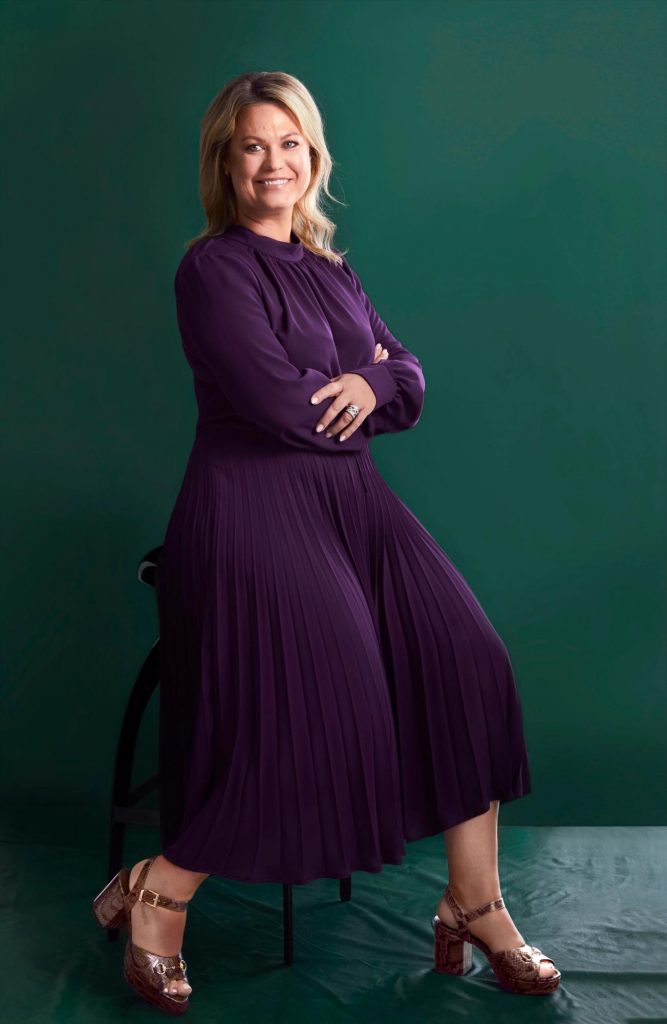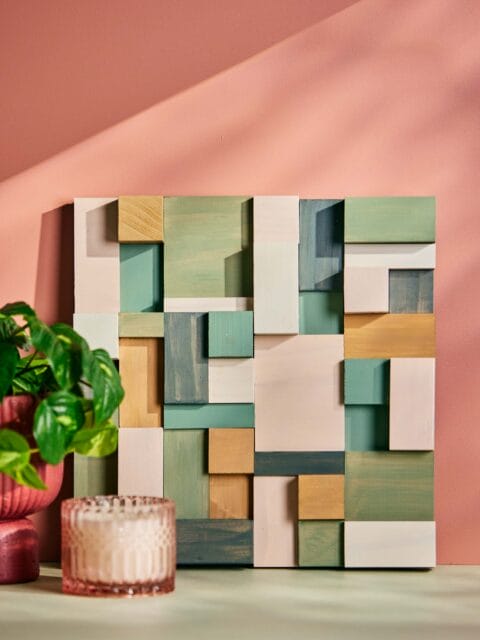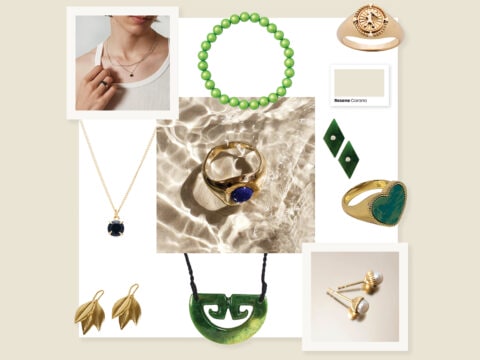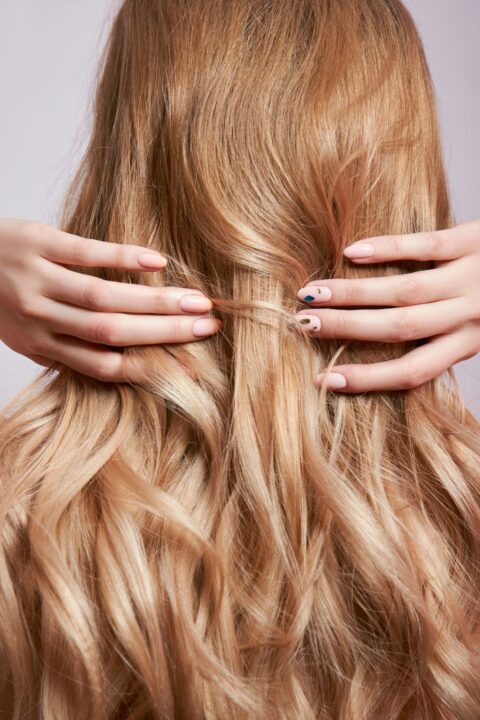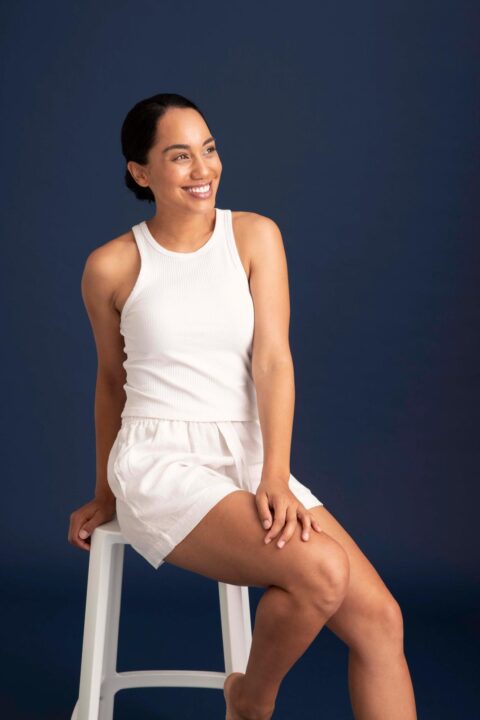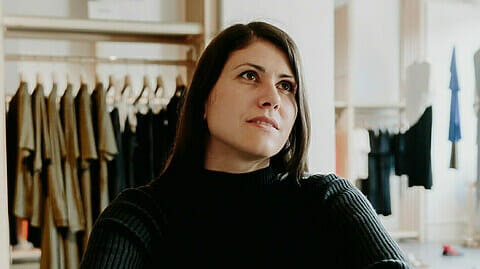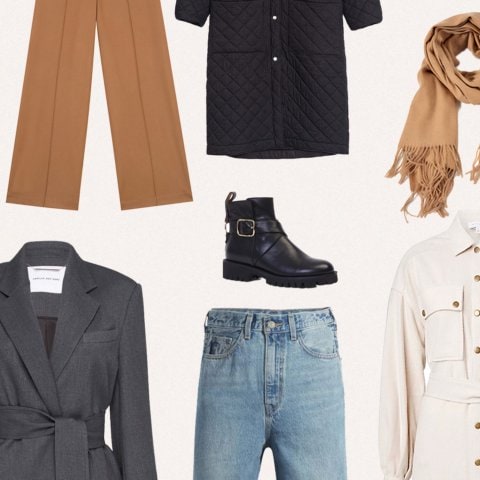Meet the six leading Kiwi designers mix style with substance as they empower women through fashion and talk gender equality and feminism.
Liz Findlay
CO-FOUNDER OF ZAMBESI
How do you think fashion empowers women?
Empowerment is all about inner strength and confidence, and fashion can reflect that in the way we choose to dress. The great thing about fashion moving forward is the freedom to express ourselves as individuals.
What do you hope your fashion will do for the women who wear it?
I hope it will give them an opportunity to express their own style and not feel limited by any fashion trend or convention.
How have you seen the industry change during your over 40-year career?
The access to a wider audience has grown over the years through the opportunity to showcase our brand in runway shows, events, social media and online. I believe that with the challenges of adapting, change can be a positive thing and it creates an environment which forces us to evaluate why and how we do things.
Why is it important to support local fashion makers?
We’re proud to be made in New Zealand and have a talented team in-house, together with outworkers and factories that produce quality garments for us and have done so for many years. When we support local, we can grow the industry and encourage the next generation, so in the future it can remain a viable option. New Zealand is such a creative environment and I see no reason why we can’t sustain the local industry here.
Is there gender parity in the fashion world?
I don’t believe that gender parity exists in the fashion world, and my hope would be for change, for equal opportunities in education and employment in all aspects of the industry, equal pay, equal respect, equal freedom to express individuality.
When you were growing up, who were your style icons?
I grew up in Dunedin and my first style icon was my mother, who had a very particular personal style and I loved trying on all her clothes. My early style icons would be Twiggy and Jean Shrimpton. I don’t really have a style icon as such today. I am inspired by life.
Can you name pivotal moments in female history where the choice of fashion has sent a message to the world?
Coco Chanel, to me, redefined gender roles with a more masculine silhouette, which empowered women and freed them from an expected role in society.
Caitlin Crisp
FOUNDER OF CAITLIN CRISP
What does feminism mean to you?
The acknowledgement that women’s personal and professional opportunities shouldn’t be restricted on the basis of our gender. Men and women should have equal opportunities in life and what we do with those opportunities is up to us. It’s about encouraging, actively supporting and celebrating the successes and achievements of women.
What do you hope your fashion will do for the women who wear it?
I hope it brings them joy knowing a fellow New Zealand woman has made that piece of clothing! There’s no better feeling than seeing a woman wearing a piece of CC with their shoulders back and a smile on their face – the natural confidence that comes with wearing a favourite piece of clothing.
Why do you think it’s important to have new creative talent coming through?
Sewing used to be a very cool career and it was more common than not to be able to pattern-make and sew, whether it was practised domestically or professionally. We could create many new jobs in New Zealand – and have a positive impact on our environment – if more consumers purchased NZ-made clothes. Nurturing and showcasing local creative talent will encourage this. Also, fashion is a very fast-paced industry, so I love having interns and meeting fashion students that are full of passion and new ideas.
Who are your female fashion mentors?
The teachers at Ara Institute, where I trained, my textiles teacher at high school, Helen Kroon, my fashion school dean, Nikki Chrisp, and my best friend Holly Sullivan, who I met while studying fashion. We have complementing skill sets and taught each other a lot. However the woman who’ll always be my number one business (and general life) mentor is my mother, 100%. She has incredible instincts, our values and intuition are very well aligned and for 25 years she’s always been there for me.
Do you think the fashion industry has a gender equality issue?
The majority of the businesses I work with in NZ fashion are owned by men, but this is changing rapidly. It’s an industry which can enable flexible working conditions, in a number of different roles, which is a great way to support women and their life choices.
Maggie Hewitt
FOUNDER OF MAGGIE MARILYN
How do you think fashion empowers women?
It empowers us to be whoever we dream to be; it allows us to show up as the best version of ourselves.
What do you hope your fashion will do for the women who wear it?
I hope they realise their power – no dream is too big. They have the power to change the world.
What are the main ways you’re hoping to change the fashion industry?
Our mission is to transform the industry into one that is transparent, circular, regenerative and inclusive. This means giving back more than what we take from Mother Nature; that we communicate openly and honestly; that everyone our business touches is empowered and treated with kindness and respect; that our supply chain is transparent; that anything we produce can be recycled or returned to nature. It means that we continue to educate ourselves and our community to ensure the health of our planet is at the forefront of every decision. Our vision is for a healthy planet, empowered people and an economy that puts these things first.
What are the biggest challenges you have faced with this?
We have to play the game we’ve inherited before we can change the rules. For one thing, we wouldn’t understand what we know now about supply chains, textile manufacturing, logistics, ordering minimums and the general “behind the scenes” of the global fashion industry. But also, it’s tough to earn credibility and influence if you’re just standing on the sidelines shouting about how wrong everyone is playing without our own brand and joining in.
We’ll continue with our ambition to grow as a business, but as we grow in size and influence we’ll decouple this growth from the use of resources and our environmental impact. We may employ more workers, generate more revenue and clothe more people, but our impact on the environment will be regenerative and our impact on our supply chain will be empowering. We’ll change the rules and make fashion a better game for everyone.
What does International Women’s Day mean to you?
Any day that celebrates women is an important day! I come from a family of four girls, so I think women are the most incredible beings. I do, however, feel blessed to have had a father who taught his daughters to reach for the stars and that no dream was too big.
Jessica Grubiša
CREATIVE DIRECTOR OF ADRIENNE WINKELMANN
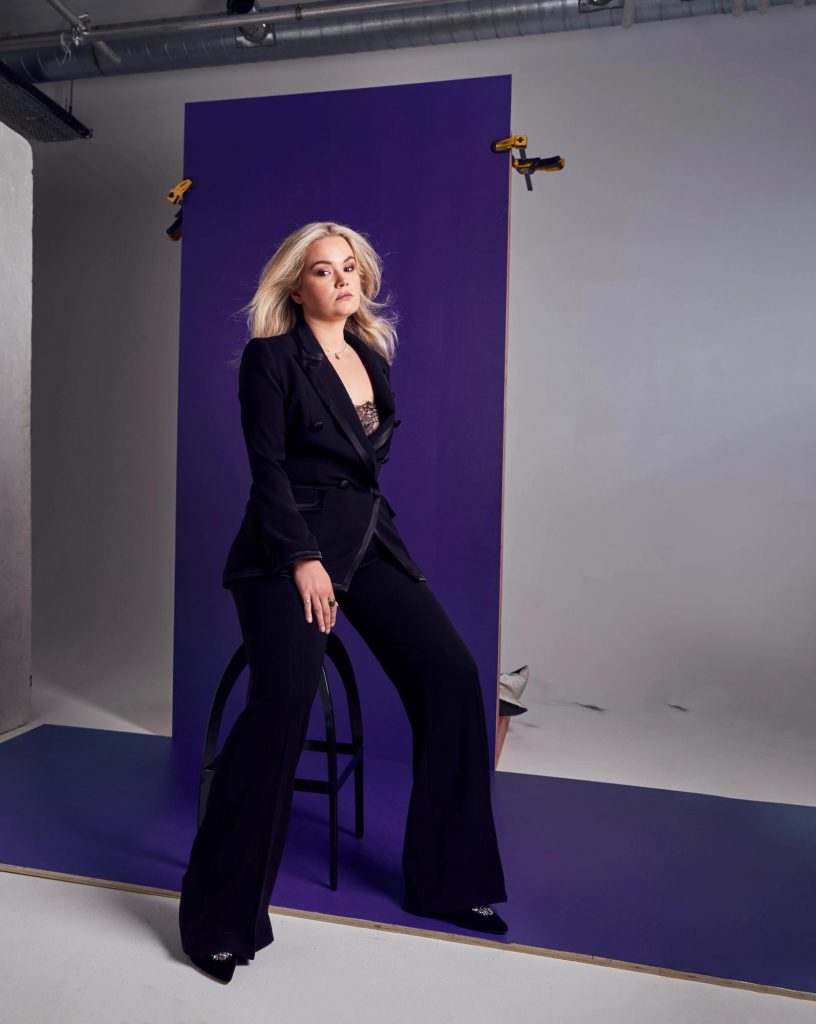
PHOTO BY CAROLYN HASSLET
What do you hope your fashion will do for the women who wear it?
I hope it fills them with confidence and makes them feel every inch of their individual beauty.
Why do you think it’s important to have fun with fashion?
It should always be fun! The power clothes can give you can enhance every mood and moment – why not explore, have fun and see where it takes you?
What have you learnt from the women you work with?
To be fearless, bold and, above all else, unapologetically you.
Does the fashion industry have a gender equality issue?
Gender equality is a global issue.
How do you think fashion empowers women?
Fashion is the armour we chose to wear daily. For me, fashion can empower me to be who I want to be and who I am, no questions asked.
When you were growing up, who were your style icons?
I’m a ’90s baby, so of course it was the Spice Girls! My ultimate style icon, however, is Miuccia Prada, forever and always.
Can you name pivotal moments in female history where the choice of fashion has sent a message?
Jackie Kennedy when JFK was shot – and her choice to keep wearing the Chanel suit
in the wake of it. This moment sent a powerful message to the world.
Trish Peng
CREATIVE DIRECTOR OF TRISH PENG
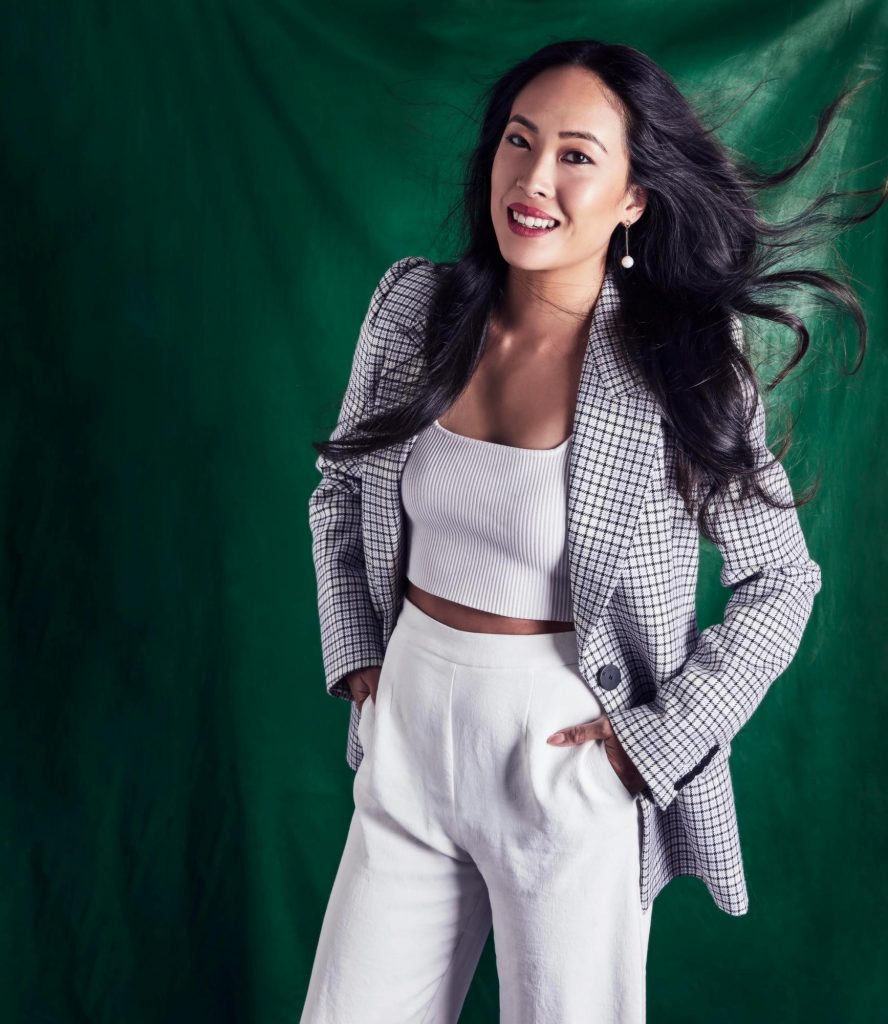
PHOTO BY CAROLYN HASSLET
What does feminism mean to you?
It’s all about men and women being given the same opportunities and societal support to achieve their goals; it’s about people bringing out the best in each other, no matter what gender they are. Although men and women sometimes have different roles in life, these differences should be seen to complement each other, much like in a relationship or marriage.
What have you learnt about women from creating their dream wedding dresses?
Every woman is so different and has her own style. I love learning about each bride’s love story and what makes them who they are. Wedding dresses hold so much sentimental value and knowing how special each design I’ve created is to someone is such a rewarding feeling.
Who are your female fashion mentors?
I worked for Trelise Cooper for about four years after high school and I learnt an incredible amount about how to run a business. She’s one of the most inspirational female designers in New Zealand.
Whose sense of style do you most admire today?
One of my ultimate icons growing up was Vera Wang; she inspired me to head into the bridal industry. Nicole Warne and Meghan Markle are my current style icons – they’re feminine, elegant and classic, and that’s also how I describe my aesthetic as a designer.
Can you name pivotal moments in female fashion history?
Coco Chanel and masculine tailoring. Kate Middleton’s high street clothing and re-wearing pieces in the public eye. The #MeToo and Time’s Up movements, with stars showing support by wearing all black on the 2018 Golden Globes red carpet.
What is a big social issue facing the world right now and what are you doing to address it?
An issue I think I can have a positive impact on is sustainability. I’m launching a sister brand called Yours Truly this month, which will sell pre-loved and sample wedding dresses starting at a very affordable price point. A portion of each sale will also go to charity.
Kathryn Wilson
CEO OF KATHRYN WILSON
How do you think fashion empowers women?
Fashion is a form of expression. I believe a great outfit or pair of shoes can definitely make you feel confident and brave. There’s nothing better than feeling good about yourself and walking into any room or situation with your shoulders back and head held high.
What can you tell about a woman from the shoes she wears?
You can tell if her shoes are purely for a purpose – or for fun!
Why is it important for women to support each other?
I’m such a big believer in the power of mentors and sharing your highs and lows in personal and business life. You can learn so much from others and it’s amazing how many people who you look up to are more than happy to help when asked. Dame Rosanne Meo, Sara Tetro, Juliette Hogan, Dame Julie Christie, Boh Runga, Caroline Sills, Cecilia Robinson, Anna Mowbray, Karen Walker, Carmen Vicelich and Silvana Schenone have all helped me with business and life advice over the years. So many female entrepreneurs from all industries have inspired and supported me over the last 18 years in business, and I’m grateful for them all.
What does feminism mean to you?
Celebrating and supporting all women.
Is there gender parity in the fashion world?
Not that I know of.
When you were growing up, who were your style icons?
I grew up in the ’80s, with style icons like Kylie Minogue and Madonna, then the ’90s supermodels like Christy Turlington, Elle Macpherson and Cindy Crawford with crisp white shirts and denim.
Whose sense of style do you most admire today?
I love and admire Beyoncé’s style for her femininity, energy and playfulness, and Dries Van Noten for his colour and prints.
Related article: My Mother in Fashion

